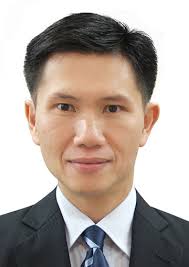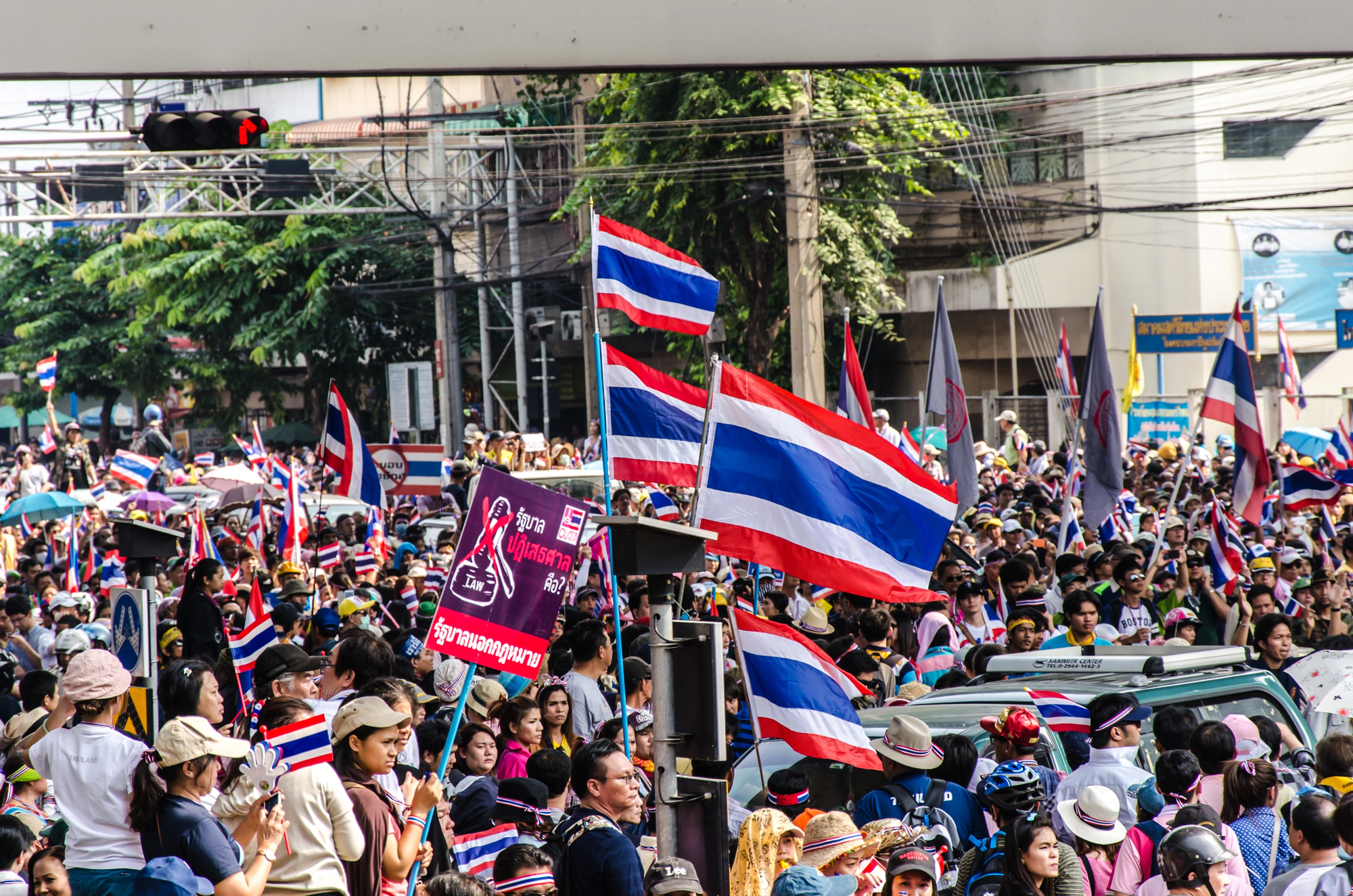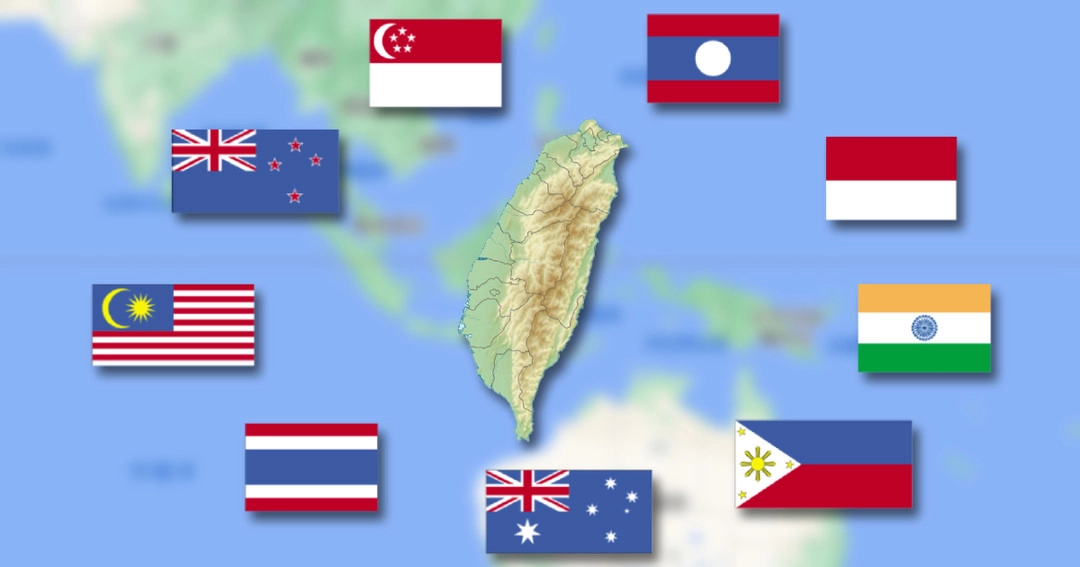Thai domestic politics will be the key to future growth or cause of worsening economic stagnation. The more Thailand turns autocratic, the more it will have to rely on China for superpower support. This is a time when Thailand needs its pro-democracy friends abroad more than ever, especially those with Asian faces, such as Japan, South Korea, Indonesia, and Taiwan. Picture source: Depositphotos.
Prospects & Perspectives No. 55
Thailand’s Political Ailments and their Regional Implications
By Thitinan Pongsudhirak
Once a promising country on the way from democratic transition to consolidation in the late 1990s, Thailand has turned semi-autocratic by the mid-2020s. Its topsy-turvy political trajectory over the past two decades is structural. The traditional institutions of power that grew out of the Cold War — monarchy, military, judiciary, bureaucracy — called the shots and provided political stability and economic development in 1960s-90s. But Thaksin Shinawatra and his political party machine posed an existential challenge in the early 2000s by directly engaging the rural masses in the body politic. When Thaksin’s Thai Rak Thai party won the 2001 election by a near-majority, the old ruling elites gave him a chance because he pledged economic recovery from the 1997-98 economic crisis, resulting in unprecedented policy innovations from universal healthcare, rural microcredit, cluster development projects, niche industrial policies in food, fashion, tourism, healthcare, and automobiles. When he won re-election by a massive landslide in February 2005, Thaksin’s sky-high popularity rivaled the then-monarch, who had long been the apex of Thai society. Yellow-clad street protests against Thaksin from August 2005 led to the September 2006 military coup.
Normally, such a coup — Thailand has had a dozen since 1932 — would reset the scene with a short-term caretaker government (e.g. 1991-92 and 2006-07), a new constitution, and elections. But not in this case. Although Thai Rak Thai was dissolved by the Constitutional Court in May 2007, its successor People’s Power party still won the election by another near-majority in December 2007 while Thaksin was in exile. This led to more yellow-shirt protests and the judicial dissolution of People’s Power party. The disenfranchised voters of Thaksin’s parties became the red shirts who protested and were violently suppressed in 2009-10. In the July 2011 election, Thaksin’s sister, Yingluck Shinawatra, led the third banner under Pheu Thai (For Thais) party to majority victory and took office.
In 2013-14, the Yingluck government faced another round of yellow-shirted protests and was ousted by another military coup in May 2014. This coup was unusual by Thai standards because the military took over government directly and stayed for the long haul as the royal succession loomed. Five years of military government produced a pro-military/monarchy constitution in 2017 which led to the election in March 2019 and four more years of military-backed government under Gen. Prayut Chan-ocha (the coup leader in May 2014).
Dashed hopes
Many young Thais who came of age during the Thaksin years through the two coups saw that their future was being squandered and thus they lined up behind the newly formed Future Forward party, calling for reforms of the military and monarchy, among other outdated institutions. Future Forward was duly dissolved in February 2020, sparking protests among young Thais which were suppressed. The May 2023 election witnessed Future Forward’s successor, Move Forward party, spectacularly winning and beating Thaksin’s Pheu Thai. Yet Move Forward was similarly disbanded in August 2024.
The recurrent pattern of military coups and judicial dissolutions indicates that the old guard behind traditional institutions will not give up power without a fight. In fact, under the new monarch since October 2016, the old guard has been increasingly assertive and interventionist. But the tide of history is against them as younger voices and cross-generational and nationwide sentiments for change, reform, and modernization appear inexorable, kept down for now by draconian legal measures and constitutional means, such as the Lèse Majesté law against royal criticism. This is why tension and confrontation will underpin the Thai political scene in the medium and longer term until this chasm between the old guard and the new gen is resolved.
Economic woes
As Thailand’s political malaise deepens awaiting a reckoning, the Thai economy has been in the doldrums. The Thai government generally and urgently wants to get the economy moving again. Thailand’s trend growth has declined from 4-5% in the early 2000s to 1.6% during 2014-23, with rising household debt of 91% and public debt above the 60% traditional threshold. The Pheu Thai-led government led by Paetongtarn Shinawatra, under her father Thaksin’s watch after his return from exile in August 2023 in a deal with the royalist establishment, will be hard pressed to implement its 10,000 baht digital wallet for each of 50 million Thais to boost consumption, a “land-bridge” to link the Gulf of Thailand and the Andaman Sea, “soft power” projects, and free-trade agreements. The paramount objective will still be to entice foreign investment. A new project being touted is entertainment complexes featuring casinos, which would require the legalization of gambling. Policy formulation is likely to be fluid and implementation patchy.
Thaksin’s strategic preference has been to prioritize income redistribution and populist measures to win votes. He did try to implement fundamental structural reforms in the early 2000s, especially an overhaul of the bureaucracy. In fact, the reforms back then elicited adversaries in the bureaucracy who conspired with the palace and military to bring him down. This time, however, Thaksin has not been talking about the kinds of structural reforms Thailand needs in the 2020s-30s, such as digitalization, supply chains adjustments, AI boom, and other ICT areas. His outlook sounds outdated, unlike the reforms espoused by Prachachon (People’s) party, the third banner after Future Forward and Move Forward. Prachachon has proposed decentralization, breakup of monopolies, SME promotion, upskilling, plug-ins to supply chains amid U.S.-China conflict.
Global perceptions
Unsurprisingly, Thailand’s international standing has diminished in the face of domestic political instability. With the enviable position of being congenitally close to China and a treaty ally of the U.S. at the same time, Thailand is unique among its regional peers for having maintained its independence without colonization. Such independence enabled Thailand to deftly navigate Western imperialism through the two world wars and the Cold War, choosing the victorious sides each time (and playing off both sides in the Second World War). This geostrategic pathway has shaped Thailand’s foreign relations. Joining the U.S. camp during the Cold War to thwart communist expansionism, Thai-U.S. relations were critically bolstered with two mutual defense treaties in 1954 and 1962. From 1960 to 1997, the Thai economy registered 6.5% in annual growth, much of it driven by the US’ foreign investment, tourism, and development aid. In the 1980s, Japanese foreign direct investment crucially increased, especially after the 1985 Plaza Accord. By the early 1990s, Thailand’s three largest export markets were the U.S., then-European Community, and Japan. The structure of the Thai economy transformed from agriculturally-based to manufacturing and services. Despite the economic crisis in 1997-98, this trend continued into the early 2000s when Thailand became a manufacturing hub.
As mentioned above, Thailand then entered a period of political volatility and lost growth opportunities in 2006-24, marked by two military coups. judicial interventions, and fraught elections whereby the powers-that-be did not allow winning parties to run the country. Military-backed governments in 2014-23 began to rule directly and moved Thailand closer to China as Bangkok was alienated from Western democracies as well as Japan. This period marked Thailand’s lowest international standing, while its traditional-leading role in ASEAN also dimmed correspondingly. China’s concurrent rise to geopolitical power and geo-economic prowess further attracted Thailand’s autocracy-leaning royalist-conservative ruling elites. Consequently, the Thai economy is structurally stuck in middle-income and lost out on the recent semi-conductor and tech innovation boom to competitors, such as Vietnam, Indonesia, and India.
Moving forward, Thai domestic politics will be the key to future growth or cause of worsening economic stagnation. As long as there is a semblance of democratic rule rather than outright military-authoritarianism, Thai foreign relations will be more balanced and omnidirectional. The more Thailand turns autocratic, the more it will have to rely on China for superpower support. This is a time when Thailand needs its pro-democracy friends abroad more than ever, especially those with Asian faces, such as Japan, South Korea, Indonesia, and Taiwan.
(Thitinan Pongsudhirak is Professor at Chulalongkorn University’s Faculty of Political Science and a senior fellow at its Institute of Security and International Studies in Bangkok.)




